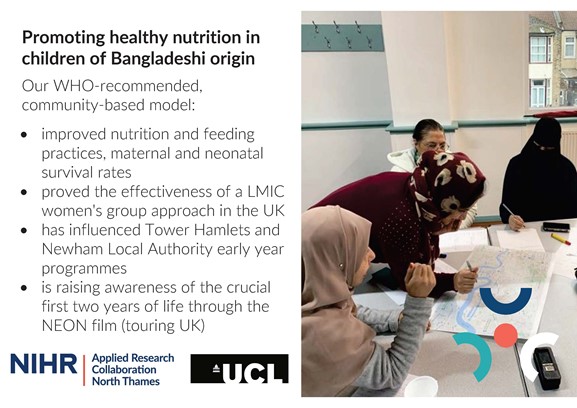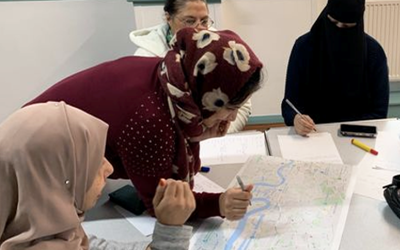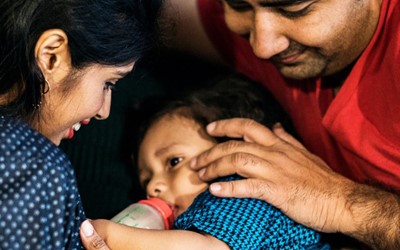Bangladeshi children living in east London have a much higher risk of poor nutrition and obesity than the average child in the UK, and so are more likely to develop longer-term health problems and chronic diseases such as heart disease, poor oral health and diabetes.
Nurture Early for Optimal Nutrition (NEON) is a community-based approach to mobilise local communities to help improve nutrition when a child is 6 months - 2 years old, a key time in their development.
This community-led approach identified several practices and factors that could be targeted to improve children's health:
- specific cultural beliefs (e.g. ‘chubby equals healthy’), and modifiable practices (e.g. a tendency to over feed and preference for fast food)
- environmental factors such as fast-food outlets and advertising. First-time parents were especially keen to have more support and information from health professional
- cultural behaviours such as that hand feeding by parents is seen as a symbol of love for the child and may continue for years, potentially causing over-feeding.
Project details: Promoting healthy nutrition in children of Bangladeshi origin in East London


 Videos
Videos




 01 Feb 2021
01 Feb 2021